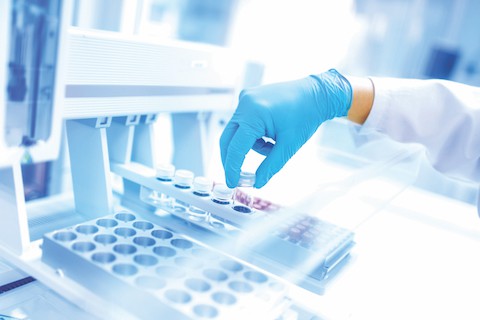
Researchers from the Massachusetts Institute of Technology (MIT), the Ragon Institute of Mass General, MIT and Harvard have created a vaccine that induces a strong antibody response against SARS-CoV-2.
The vaccine, known as a particulate vaccine, consists of a DNA scaffold that carries multiple copies of a viral antigen that mimics the structure of a virus.
SARS-CoV-2 is a strain of coronavirus that causes COVID-19.
Particulate vaccines rely on protein scaffolds but tend to generate an unnecessary immune response, which distracts the immune system from the target.
Researchers tested the vaccine on mice and discovered that the DNA scaffold does not induce an immune response. Instead, it allows the immune system to focus its antibody response on the target antigen.
Mark Bathe, professor of biological engineering, MIT, explained: “To neutralise the SARS-CoV-2 virus, you want to have a vaccine that generates antibodies toward the receptor binding domain portion of the virus’ spike protein.”
Strongly stimulating the cells that produce antibodies, known as B cells, which persist for decades, offering long-term protection, could help to improve the development of vaccines against viruses that have been challenging to target, such as HIV and influenza.
Researchers swapped in an antigen consisting of the receptor-binding protein of the spike protein from the original strain of SARS-CoV-2 and gave it to mice. They found that the mice generated high levels of antibodies to the spike protein without generating any to the DNA scaffold.
Being able to reduce these off-target effects, as seen in particulate vaccines, could help scientists develop a vaccine that could induce broadly neutralising antibodies to any variant of SARS-CoV-2, as well as sarbecoviruses, the subgenus of viruses that includes SARS-CoV-2, SARS and MERS.
Describing the approach as a “powerful immunological trick,” Daniel Lingwood, associate professor, Harvard Medical School and principal investigator, the Ragon Institute, said: “We’re interested in exploring whether we can teach the immune system to deliver higher levels of immunity against pathogens that resist conventional vaccine approaches.”
Researchers are currently exploring whether a DNA scaffold with multiple viral antigens attached could induce broadly neutralising antibodies against SARS-CoV-2 and related viruses.




